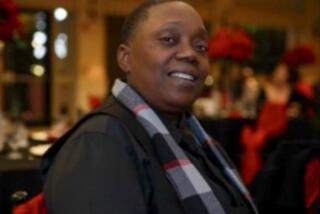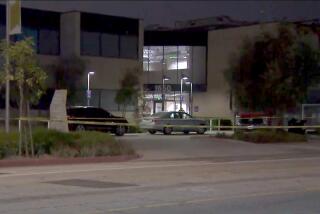Home Work : Education: Administrators at Santa Monica College get a day off each week to ‘think, write, create.’ It’s part of a program to change the campus workplace.
- Share via
The president of Santa Monica College isn’t allowed in his office on Thursdays. The dean of educational development isn’t permitted in his on Wednesdays.
Starting last week, 28 of the Westside community college’s top administrators are putting aside their normal duties one day a week to spend the day at home, at the beach or wherever they wish, making what they see as the best use of their time.
Santa Monica College President Richard Moore, who dreamed up the program, calls these officially sanctioned days away from the office “TWC days,” designed to give the administrators time to “think, write, create.”
Each of the administrators has been teamed with an administrative “buddy” who will handle any emergencies that arise on his or her day out of the office. And phoning the administrators at home isn’t against the rules.
As Moore, 56, explained, the plan occurred to him several weeks ago when he heard a National Public Radio report on a utilities company that encouraged its managers to work at home twice a month. “Why don’t we do that, and why don’t we do once a week?” he asked himself.
Obviously, the plan has ecological merit, albeit on a minor scale. Days spent working at home will theoretically mean fewer administrators’ cars polluting the air before converging on the campus. “I think smog is a really bad idea, and traffic is terrible,” Moore said. “We have to get more cars off the roads.”
But even more attractive, Moore said, is the notion of building contemplative time into the college work week.
“So many of us are captive here at work to emergencies that come up and to scheduled meetings, that we only have time to be creative on weekends,” he said.
Freed of the frequent interruptions of the office, administrators will be able to polish off their paper work and other routine obligations “in two or three hours at home, and then we can spend time thinking and writing and creating,” he speculated.
Moore is consciously trying to change the campus workplace, he said, because he believes educators should be in the forefront of examining and changing society and that they most effectively do so by example. “We are role models. We have to be experimenters ourselves.”
As educators, Moore said, “we are not a debating society or a preaching society. We have to think things out and change our own lives, then change our college . . . and, then, other people may decide they want to make changes too. It’s how we live, not what we are talking about, that’s important.”
Moore has instituted several innovative practices on campus recently. Non-faculty personnel have been asked to read for half an hour during each work week. Moore also has asked the board of trustees to devote part of each monthly meeting to contemplating major social, even global issues, such as whether drugs should be legalized and the implications of the recent events in Eastern Europe.
Moore said he isn’t unduly concerned if some of the campus experiments flop. “Some of the things we try have got to fail or we are not trying the right experiments,” he said.
Moore said he has asked campus unions to consider something like TWC days for their members.
Moore, who has been president of the college since 1974, said he has begun working mornings at his home in Santa Monica Canyon, often setting up shop on the patio outside his bedroom, formerly a detached garage.
He said he has three projects lined up to fill his Thursdays. He’s writing a series of articles on education. He plans to work on his photography: “I’m going to pick up a camera and go out and sharpen my eye.” And, most ambitious, “I’m going to try to figure out how to transform America.”
No one knows how the plan will work, but administrators are said to be looking forward to it, especially those with long commutes.
Robert Silverman, administrative dean of educational development, said he thinks it is a great idea. Silverman admitted he had taken the occasional day off from the office before it was officially sanctioned this week, and he discovered he thought much more clearly on the beach.
One aspect of the plan that appeals to him, Silverman said, is that “it forces other people to step into my shoes when I’m gone.”
Silverman said he plans to use one of his Wednesdays visiting the League for Innovation in the Community College, an educational think tank in Laguna Hills.
He said he’ll leave his car at home and take the bus.
More to Read
Sign up for Essential California
The most important California stories and recommendations in your inbox every morning.
You may occasionally receive promotional content from the Los Angeles Times.













